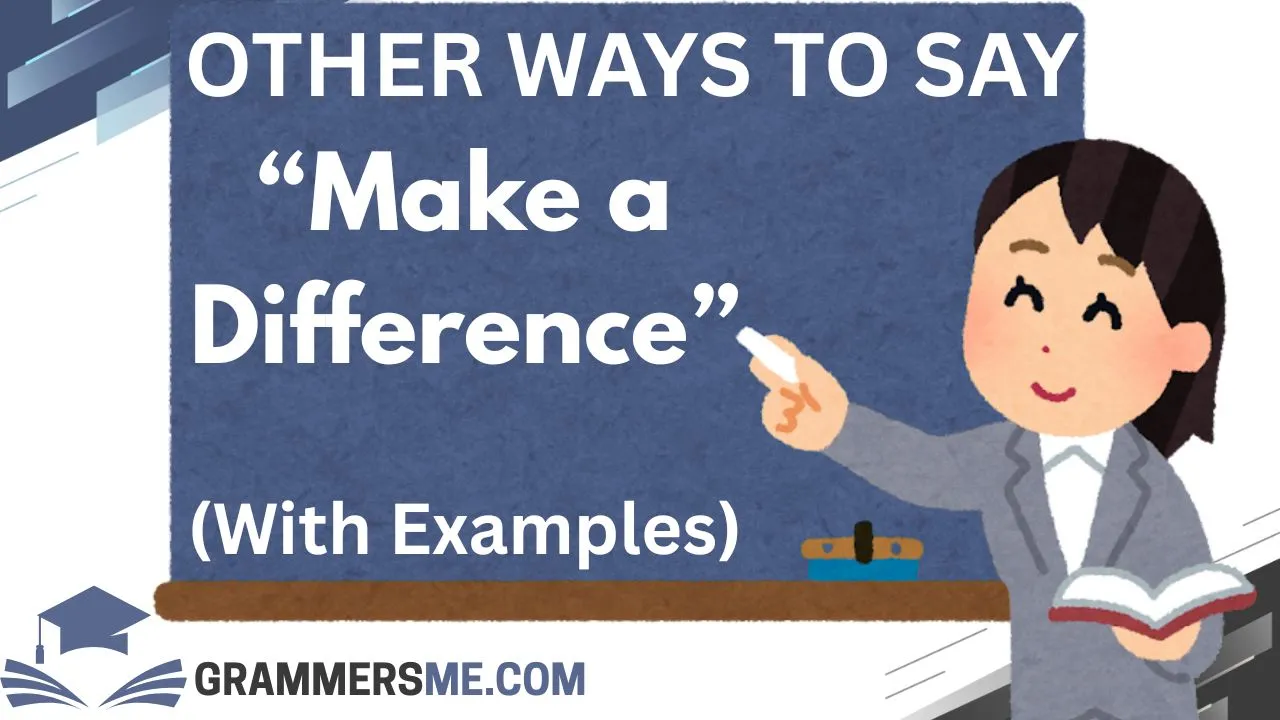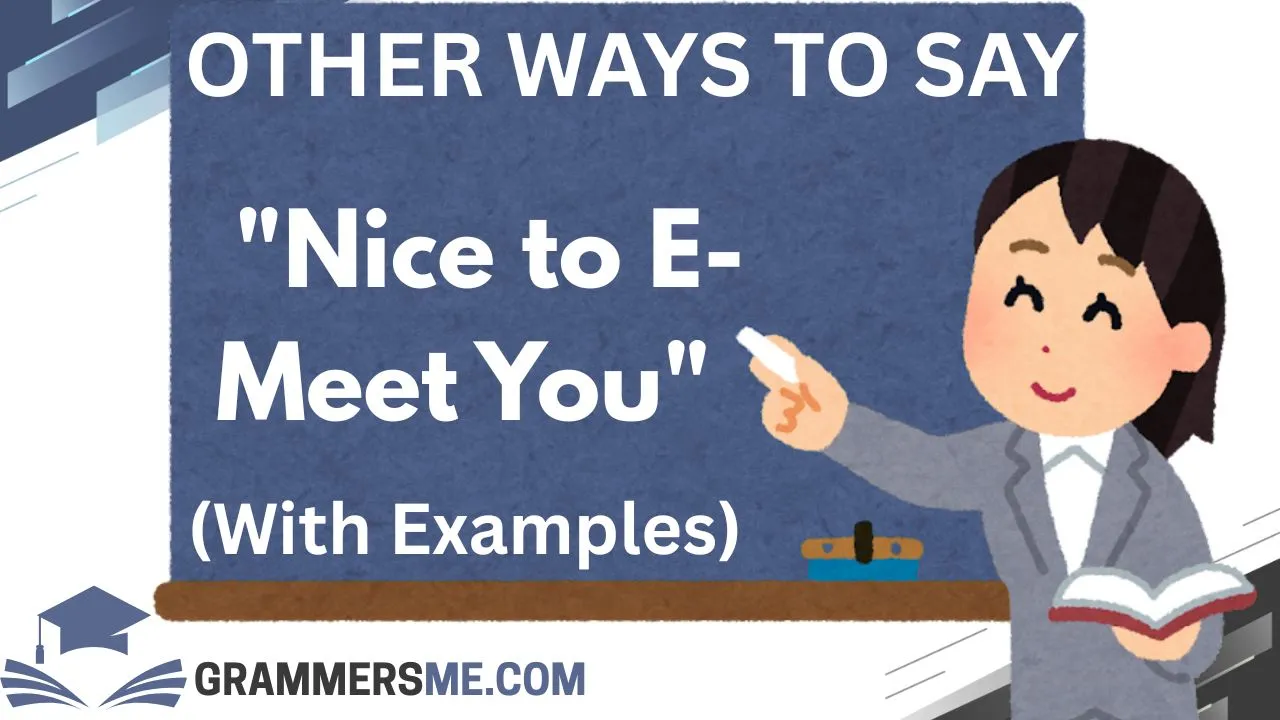Expressing pride in someone is a powerful way to show support, encouragement, and care. While saying “I’m proud of you” is lovely, it can sometimes feel repetitive. Finding different ways to express your pride can make your words even more meaningful, helping you connect on a deeper level.
Whether you’re congratulating a loved one for an accomplishment or cheering on a colleague for a job well done, these alternative phrases allow you to tailor your message to the situation and your relationship. Here’s a list of 30 heartfelt alternatives that convey your admiration and pride with warmth and sincerity.
What Does “I’m Proud of You” Mean?
Saying “I’m proud of you” conveys admiration for someone’s achievements or qualities. It signifies approval and appreciation for their efforts and results. Whether it’s an academic success, a personal growth milestone, or a small act of kindness, it’s a way of recognizing someone’s hard work or positive character.
This simple phrase can carry deep emotional weight, offering a sense of validation, encouragement, and support. However, sometimes it’s important to mix things up to avoid overusing the same words. Let’s explore 30 alternative phrases to help express your pride in a more personalized way!
Is It Professional/Polite to Say “I’m Proud of You?”
In many professional settings, expressing pride in someone’s achievements is both polite and motivating. It can be especially meaningful when you acknowledge someone’s hard work or success. However, the tone should always match the context. In more formal environments, you might choose phrases that are a bit more reserved or professional, while in casual or personal settings, expressing pride can be more informal and enthusiastic. Always consider the relationship and context when selecting your words.
1. “You’ve Done an Amazing Job!”
Meaning: This phrase shows admiration for someone’s work and effort.
Explanation: It’s a straightforward way to acknowledge someone’s effort and the excellence they’ve put forth in their task or achievement.
Scenario Examples:
- After completing a project at work.
- When a child shows off their artwork.
Best Use: Casual settings, both personal and professional. It’s great for complimenting someone’s work or efforts.
Not Use: In formal or academic settings where more neutral language is preferred.
2. “You Should Be So Proud of Yourself!”
Meaning: Encouraging the person to recognize their own achievements and feel a sense of pride.
Explanation: This phrase not only acknowledges the achievement but also helps the person internalize their success.
Scenario Examples:
- After a difficult exam or test.
- When someone completes a big personal goal.
Best Use: Motivational moments, when you want the person to feel empowered.
Not Use: When the person is feeling insecure or uncertain; it might come across as too forward.
3. “You’ve Really Outdone Yourself!”
Meaning: This phrase shows deep admiration for someone’s effort, highlighting that they exceeded expectations.
Explanation: This emphasizes the person’s achievement as something truly exceptional, above and beyond what was expected.
Scenario Examples:
- When someone delivers a top-tier presentation.
- When a friend cooks an impressive meal.
Best Use: To acknowledge someone going above and beyond in any task.
Not Use: When you’re offering polite praise that doesn’t necessarily reflect someone’s extraordinary effort.
4. “What an Incredible Achievement!”
Meaning: Acknowledges the gravity or significance of what the person has accomplished.
Explanation: This phrase gives weight to the success, highlighting that it’s no small feat.
Scenario Examples:
- When someone achieves a personal milestone or goal.
- When someone receives an award.
Best Use: In both personal and professional settings to emphasize a major achievement.
Not Use: For minor accomplishments or when a simple “good job” will suffice.
5. “You Should Be So Proud of Your Accomplishment!”
Meaning: Similar to “You should be proud of yourself,” this puts focus on the importance of the specific accomplishment.
Explanation: It reminds the person that their hard work has paid off and they should take a moment to appreciate it.
Scenario Examples:
- After completing a marathon.
- When someone finishes a long-term project.
Best Use: Motivational and encouraging, perfect for when the person has reached a significant milestone.
Not Use: When the achievement is still in progress or the person is modest about their accomplishments.
6. “That’s Truly Impressive!”
Meaning: Acknowledges how remarkable the accomplishment is.
Explanation: This phrase conveys admiration for the quality of the achievement, often indicating it surpassed expectations.
Scenario Examples:
- When someone demonstrates new skills.
- When someone accomplishes a difficult task.
Best Use: To highlight a specific feat or success that stands out.
Not Use: When the person hasn’t fully completed something or the accomplishment doesn’t feel significant.
7. “You’ve Made Such Great Progress!”
Meaning: Acknowledges improvement or growth, rather than just the end result.
Explanation: This phrase focuses on the journey and the effort, not just the final product.
Scenario Examples:
- When someone shows improvement in their fitness journey.
- When a colleague’s skills improve over time.
Best Use: When someone is still on the path to a bigger achievement, but their progress is commendable.
Not Use: When the progress is minimal or feels patronizing.
8. “You Should Take a Moment to Celebrate!”
Meaning: Encourages the person to appreciate and enjoy their success.
Explanation: It not only expresses pride but also prompts the person to revel in their hard-earned success.
Scenario Examples:
- After someone completes a challenging project or goal.
- When a friend reaches a significant milestone.
Best Use: To suggest that someone takes pride in their efforts and recognizes their worth.
Not Use: When the person is humble and may not feel like celebrating.
9. “I Knew You Could Do It!”
Meaning: Expresses confidence in the person’s abilities, showing belief in their potential.
Explanation: This phrase reinforces that you always believed in them, adding a personal, emotional layer to the praise.
Scenario Examples:
- When someone accomplishes a goal they had been working toward.
- When a friend overcomes a personal challenge.
Best Use: Ideal for moments when someone has been facing doubts or obstacles.
Not Use: When you haven’t been supportive or involved in their process.
10. “You’ve Proven Yourself!”
Meaning: This phrase highlights that the person has demonstrated their abilities or strengths through action.
Explanation: It focuses on the person’s ability to deliver results, proving their worth through their actions.
Scenario Examples:
- After a difficult task is completed successfully.
- When a person steps up to a challenge and exceeds expectations.
Best Use: For moments of great achievement, especially when someone has overcome significant challenges.
Not Use: In situations where the person is still learning or struggling.
11. “You Continue to Impress Me!”
Meaning: Expresses ongoing admiration for someone’s consistent efforts and achievements.
Explanation: This phrase highlights that the person doesn’t just impress once but continues to do so over time. It’s great for recognizing sustained hard work or talent.
Scenario Examples:
- When a colleague consistently delivers excellent work.
- When a friend repeatedly shows kindness and growth.
Best Use: When you want to acknowledge long-term success or continuous improvement.
Not Use: When referring to a one-time achievement.
12. “You’ve Earned This!”
Meaning: Reinforces that the person truly deserves their success due to their hard work.
Explanation: This phrase acknowledges the effort and dedication someone put in to achieve their goal, making the recognition feel more meaningful.
Scenario Examples:
- When someone gets a promotion after years of hard work.
- When a student passes a difficult exam after long study hours.
Best Use: When the achievement is directly tied to their effort and perseverance.
Not Use: When the success is due to luck or outside circumstances rather than effort.
13. “You Are an Inspiration!”
Meaning: Expresses that their hard work or success serves as motivation for others.
Explanation: This phrase goes beyond personal pride and highlights how their achievements influence and inspire those around them.
Scenario Examples:
- When someone overcomes adversity and achieves success.
- When a friend follows their passion despite challenges.
Best Use: When someone’s journey or success has a powerful, positive impact on others.
Not Use: When the situation is small-scale or doesn’t hold deeper inspirational value.
14. “You’ve Come So Far!”
Meaning: Acknowledges a person’s growth and progress over time.
Explanation: This phrase highlights the journey rather than just the final achievement, making it meaningful for long-term efforts.
Scenario Examples:
- When someone improves their skills over time.
- When a friend achieves personal growth or self-improvement.
Best Use: For acknowledging progress in learning, fitness, career growth, or personal development.
Not Use: When the person has just started their journey or hasn’t made significant progress yet.
15. “I Admire Your Dedication!”
Meaning: Highlights respect for someone’s consistent effort and commitment.
Explanation: This phrase shifts the focus from the result to the hard work and perseverance it took to get there.
Scenario Examples:
- When someone works tirelessly to achieve a long-term goal.
- When a colleague puts in extra effort on a challenging project.
Best Use: When you want to acknowledge determination, hard work, and perseverance.
Not Use: When the achievement was effortless or came without much struggle.
Read More: 30 Other Ways to Say “Have a Great Weekend” (With Examples)
16. “You Handled That Perfectly!”
Meaning: Compliments someone’s ability to manage a situation with skill and confidence.
Explanation: This phrase is useful for recognizing not just success but also grace under pressure.
Scenario Examples:
- When a colleague manages a tough client meeting smoothly.
- When a friend stays calm and makes the right decisions in a crisis.
Best Use: For situations that require skill, tact, or problem-solving.
Not Use: When the person struggled significantly or if the outcome wasn’t ideal.
17. “You Make It Look Easy!”
Meaning: Highlights someone’s skill or expertise by noting how effortlessly they perform.
Explanation: This phrase suggests that their ability is so natural that it appears effortless—even if a lot of work went into it.
Scenario Examples:
- When a musician plays a difficult piece flawlessly.
- When a leader navigates a challenging task with ease.
Best Use: When someone performs exceptionally well, especially in areas that are difficult for others.
Not Use: When the person struggled or put in obvious effort that shouldn’t be overlooked.
18. “That Was Truly Outstanding!”
Meaning: Emphasizes that the person’s performance or achievement was exceptional.
Explanation: This phrase makes it clear that the level of success was far beyond the norm.
Scenario Examples:
- When a student gives an excellent speech.
- When an athlete breaks a record.
Best Use: When the achievement is remarkable and deserving of strong praise.
Not Use: When the accomplishment is minor or expected.
19. “You’ve Made a Huge Difference!”
Meaning: Acknowledges someone’s impact, especially when their efforts benefit others.
Explanation: This phrase is perfect for recognizing contributions that have positively affected people or situations.
Scenario Examples:
- When a volunteer helps improve a community.
- When a leader’s decisions lead to a successful outcome.
Best Use: When recognizing someone’s contributions, leadership, or influence.
Not Use: When the person’s actions didn’t significantly change the outcome.
20. “Your Hard Work Paid Off!”
Meaning: Recognizes that their effort has led to a successful outcome.
Explanation: This phrase reassures the person that their dedication and persistence were worthwhile.
Scenario Examples:
- When a business owner finally sees success after years of struggle.
- When a student gets accepted into their dream school after studying hard.
Best Use: When someone has worked tirelessly toward a goal and achieved it.
Not Use: When luck or external factors played a bigger role in the success.
21. “Your Growth is Incredible!”
Meaning: Highlights how much someone has improved or evolved over time.
Explanation: This phrase acknowledges progress, not just the final achievement, making it great for recognizing personal and professional development.
Scenario Examples:
- When a junior employee shows significant improvement in their skills.
- When a friend overcomes past struggles and becomes more confident.
Best Use: When someone has shown noticeable self-improvement, resilience, or dedication.
Not Use: When the change is minimal or doesn’t feel meaningful.
22. “You Have a Lot to Be Proud Of!”
Meaning: Encourages someone to acknowledge and appreciate their own success.
Explanation: This phrase shifts the focus to self-recognition, helping them internalize their achievements and feel confident.
Scenario Examples:
- When a student graduates with honors.
- When a person achieves a lifelong dream.
Best Use: When someone is feeling unsure about their accomplishments and needs encouragement.
Not Use: When the person doesn’t enjoy being in the spotlight or may find the phrase overwhelming.
23. “You Deserve This Success!”
Meaning: Reinforces that the person has worked hard and truly earned their achievement.
Explanation: This phrase validates the person’s efforts, ensuring they know their success wasn’t just luck—it was deserved.
Scenario Examples:
- When a colleague receives a promotion.
- When an athlete wins a championship after years of training.
Best Use: When someone has put in long-term effort and finally achieved their goal.
Not Use: When the success was based on external factors rather than effort.
24. “I Have So Much Respect for You!”
Meaning: Expresses admiration beyond just pride, emphasizing deep respect for their character or efforts.
Explanation: This phrase is useful when someone’s actions, dedication, or values have made a lasting impression.
Scenario Examples:
- When a friend stands up for their beliefs despite challenges.
- When someone works tirelessly for a cause they believe in.
Best Use: When expressing appreciation for someone’s strength, resilience, or integrity.
Not Use: In casual settings where lighter praise would be more appropriate.
25. “You Handled That Like a Pro!”
Meaning: Compliments someone’s skill and ability to handle a situation expertly.
Explanation: This phrase is ideal for moments when someone successfully manages a challenging or complex task with confidence.
Scenario Examples:
- When a leader navigates a crisis smoothly.
- When a friend delivers a flawless presentation.
Best Use: When recognizing competence, confidence, and skill in handling difficult situations.
Not Use: When the person struggled significantly and the outcome wasn’t successful.
26. “The World Needs More People Like You!”
Meaning: Highlights the person’s kindness, integrity, or exceptional qualities.
Explanation: This phrase is great for acknowledging character traits rather than just achievements.
Scenario Examples:
- When someone goes out of their way to help others.
- When a teacher positively impacts their students.
Best Use: When recognizing someone’s values, kindness, or positive influence.
Not Use: When referring to a small or routine achievement.
27. “You’re Doing an Outstanding Job!”
Meaning: Recognizes the excellence of someone’s ongoing work or efforts.
Explanation: This phrase keeps the focus on their performance and effort, making it great for workplace or academic praise.
Scenario Examples:
- When an employee consistently meets high standards.
- When a student excels in their coursework.
Best Use: When providing professional or academic recognition for continuous effort.
Not Use: When the performance is still developing or requires improvement.
28. “I Can See How Much Work You Put Into This!”
Meaning: Acknowledges and appreciates someone’s effort, regardless of the outcome.
Explanation: This phrase shifts the focus from the final result to the dedication and effort involved.
Scenario Examples:
- When a friend works hard on a creative project.
- When a colleague stays late to complete a task.
Best Use: When you want to validate effort rather than just success.
Not Use: When the outcome was careless or didn’t show real effort.
29. “That Took a Lot of Courage—Well Done!”
Meaning: Recognizes bravery in facing a challenge or taking a bold step.
Explanation: This phrase is perfect for moments when someone has to step out of their comfort zone.
Scenario Examples:
- When someone gives a speech despite stage fright.
- When a friend makes a difficult but necessary life decision.
Best Use: When recognizing acts of bravery, confidence, or personal growth.
Not Use: When the situation didn’t require much courage.
30. “You Never Cease to Amaze Me!”
Meaning: Expresses that someone continuously impresses you with their actions, growth, or character.
Explanation: This phrase shows admiration and appreciation for ongoing effort or qualities.
Scenario Examples:
- When a friend keeps achieving new personal goals.
- When a colleague consistently delivers exceptional work.
Best Use: When someone repeatedly demonstrates growth, excellence, or impressive skills.
Not Use: When referring to a one-time achievement.
Conclusion
Finding unique ways to say “I’m proud of you” helps your words feel more personal, heartfelt, and tailored to the situation. Whether you’re encouraging a friend, recognizing a colleague’s hard work, or celebrating a loved one’s achievements, these 30 alternatives allow you to express admiration in a way that truly resonates.
Using a mix of these phrases can keep your praise fresh and meaningful, ensuring that your support always feels genuine and impactful.
FAQs
1. Can I use these alternatives in professional settings?
Yes! Many of these alternatives, such as “You’ve done an amazing job!” or “Your hard work paid off!”, are perfect for workplace recognition. Just choose ones that match the level of formality needed.
2. What’s the best way to make my praise feel more sincere?
Be specific! Instead of just saying “You did great!”, mention why you’re impressed, like “I admire your dedication to this project—it really shows in the final result!”
3. How can I show pride without using words?
Actions speak volumes! Celebrate their success, offer a thoughtful gift, or simply spend time with them to show you recognize their achievements.
4. Should I avoid saying “I’m proud of you” directly?
Not at all! It’s still a powerful phrase, but mixing it with alternatives can make it feel even more heartfelt and avoid overuse.
5. What if the person downplays their achievements?
If someone struggles to accept praise, focus on effort rather than just results. Saying “I can see how much work you put into this!” makes it about their dedication rather than just the outcome.




